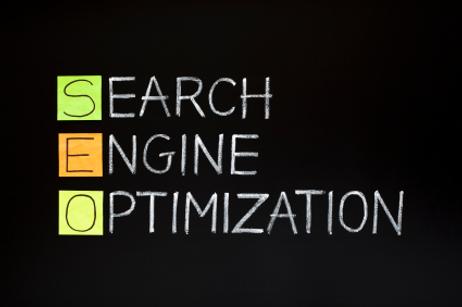Introduction
SEO or Search Engine Optimization is a mystery to the uninitiated. It is one of those arcane sciences that webmasters everywhere have to be aware of. Unfortunately, the mention of SEO for the rest of us prompts most of us to start reading emails and texting friends. It's all so technical. The truth is that good SEO can enhance your marketing efforts. It can make your school more visible to the audience which you are trying to reach. Poor or non-existent SEO will bury your site so that it is practically invisible. So, ignore SEO at your own peril. At the least get your arms around the basics so that you can supervise your web management and design team authoritatively.
Basics
What is Search Engine Optimization? In its simplest terms, SEO is making sure that your site's meta tags and content are optimized so that parents and students can find your site easily when they type specific words into a search engine. For example, if you ask Google to show results for the words "private schools", it will oblige millions of sites that have something to do with "private schools". But be more specific and ask Google to find you private schools in Raleigh, North Carolina, for example, and instantly your search results will narrow and be more focused. That's the point of SEO. To make your Web site more visible.
10 years ago SEO didn't matter much. The Web was just beginning to take off as a resource you and I could use in just about every aspect of our daily lives.
10 years ago most private schools relied almost exclusively on brochures and beautifully printed catalogs for their marketing tools. Parents visited your Web site, found a phone number or address, and requested catalogs. The Web site in those days was considered an add-on.
These days your Web site is one of the most powerful marketing tools you have. Its reach is enormous and long-lasting.
These days your Web site requires professional design and daily maintenance in order to position your school effectively in the marketplace.
S E O B a s i c s
Here are some of the terms which you will encounter when SEO is discussed. There's much more to SEO than what I mentioned but this will get you started. I have appended some resources for further reading. Bookmark them so that you can do some in-depth reading before your next meeting with your Web team.
Meta Tags
Hidden in the background where nobody but other webmasters and web page designers can see it is some very sophisticated code that tells search engines like Google and Bing what the site is about.
According to Metatags.org "Research shows that only 20% of all web pages contain these important meta tags in their HTML and over 85% of these websites are unfit to be submitted to the search engines."
Think of keywords like landscaping for your home. We all know that professionally designed landscaping can add value to your real estate. Well-designed landscaping attracts people to your house. It showcases your property highlighting all of its best features, while at the same time minimizing its minor faults.
Same thing with your school's Web site. The public part of your Web site can be appealing and attractive. But if the meta tags don't draw parents and students and others you want to know about your school, your Web site won't get noticed.
Search engines like Google and Bing read meta tags when they crawl your site. Search engines don't have people looking at the millions of Web sites out there. They use a tool called a spider or Web robot (bot). Spiders visit millions of Web sites and read the data on those hidden pages. They report that data back to their owners. Search engines use algorithms to parse the data which the spiders mine. That parsing in turn determines where your page ranks in search results.
To see what your meta and other information look like, find View >Source in Internet Explorer and Tools>Web Developer>Page Source in Firefox.
Keywords
Keywords help tell search engines what your content is about. For example, if your keywords include "day school", "private school", "miami", "gulliver schools" when somebody searches for "private schools miami", the search results will hopefully include The Gulliver Schools.
It is much more complicated, of course, depending on the tags you actually use and how you want the spiders to crawl your site. But basically, the spiders are looking for a match elsewhere on your site with those meta tags which you have used. In other words, if your site is about your school, it will make sense to have the tags and content reflect that focus.
Content
Because your Web site is all about your school, it should describe in words and images all that goes on at your school. As long as the content on all your pages matches the stated purpose of the site, it will get noticed. After all your school has a unique name, doesn't it? There is only one Savannah Country Day school, after all. But what if people simply search geographically using, for example, words such as "private schools savannah georgia" You will find Savannah Country Day School near the top of your search results simply because it is a good match. Think of how you search for things on the Internet. Parents and students do the same thing.
That's why the content must match. If your Web site's meta title includes "Savannah Country Day School", it will appear in the search results for the search string we used earlier.
Hashtags
The # or pound sign has been used since 2007 to enable your online material to be found easily. For all practical purposes, they have replaced Meta Data such as keywords when spiders roam websites. The question most social media site curators have is how many and which hashtags are the most effective. As in many things, keeping it simple works best. For example, if I wanted to write a hashtag for Savannah Country Day School, I would create a hashtag #privateschoolsavannah or #privateschoolsgeorgia. Input either hashtag into Google and you be rewarded with targeted results.
We'll discuss community, social media, value, and brand in a future article on SEO. Good luck reviewing your school's SEO practices.
Questions? Contact us on Facebook. @privateschoolreview















